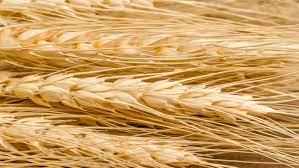Counting the Omer
Leviticus 23: 15-16
The countdown of the omer is a countdown to Shavu’ot.
Among Gentile believers today the same festival is known as Pentecost, which comes from the Greek word “fifty” because the feast is fifty days after Hag ha’Matzot. From the day after Shabbat, that is, from the day you bring the omer for waving, you are to count seven full weeks (literally Sabbaths), until the day after the seventh week; you are to count fifty days; and then you are to present a new grain offering to ADONAI (Leviticus 23:15-16).

The Torah commands us to begin counting omer the day after shabbat, which is Sunday, or Resheet (to see link click Ea – Resheet). The Messianic implications of the omer and the subsequent countdown are great. Just as the first omer of barley was brought as a first fruits of the whole harvest, so too Messiah’s resurrection was a first fruits of the resurrection of the dead. This is the imagery Paul invokes with the words: Messiah has indeed been raised from the dead, the first fruits of those who have fallen asleep (see the commentary on First Corinthians Dt – Messiah: The Firstfruits of Those Who Have Fallen Asleep). Just as the first fruits of the barley harvest made all the rest of the harvest kosher for harvest, so, too, the resurrection of Messiah makes the resurrection of the dead possible.
Because of the resurrection and the connection to Shavu’ot (see Ec – Hag Shavu’ot), counting the omer is a precious mitzvah for believers. According to Jewish tradition, the counting is done in the following manner. After the evening prayers, a blessing is recited: “Blessed are You, LORD our God, King of the Universe, Who has sanctified us with His commandments and commanded us to count the omer.” Then the counter simply states, “Today is one day of the omer, or two days of the omer, or three days of the omer, and so on.
This formal counting is followed by the recitation of Psalm 67 and a few short petitions for spiritual cleansing and renewal. Psalm 67 is recited because it is composed of exactly 49 Hebrew words which correspond to the 49 days of the omer count. The Psalm is seasonally appropriate because of its harvest motif. It is spiritually appropriate because it speaks clearly of God’s salvation (in Yeshua) being made known over all the earth.
The countdown of the omer is a countdown to Shavu’ot, which has traditionally been celebrated as the time of the giving of the Ten Words to the nation of Isra’el (see the commentary on Deuteronomy Bk – The Ten Words), seven weeks after their miraculous exodus from Egypt. As such, it is a spiritual journey of preparation. It is a journey that is begun with Pesach (pointing to the death of Messiah), and completed at Shavu’ot (pointing to the permanent giving of the Ruach Ha’Kodesh and the birth of the Church). The days between the two festivals should be a time of spiritual reflection, growth, purification and preparation.442
In Judaism, the first thirty-three days of the omer are treated as days of semi-mourning in commemoration of several calamities from the early AD. The following activities are curtailed during the period of mourning: marriages and wedding celebrations, cutting of one’s hair, listening to instrumental music, and purchasing and wearing new garments.443 The thirty-third day of the omer is a semi-festival on which the mourning is suspended.
Our Master’s resurrection makes the counting of the omer a season of special significance and joy for His disciples. It is a time for us to remember the resurrection of Yeshua among us. All of His post-resurrection appearances fell within the days of counting the omer. On the fortieth day of counting the omer, some Messianic communities celebrate the Master’s ascension. This is sometimes accomplished with a special service, but more often the occasion is marked with a gathering of a time of song, teaching and inspiration.444
Use this God-given time to:
Focus on the promises of God: The promise of the Spirit’s presence in our lives to lead us in God’s righteous ways; God’s unconditional acceptance of us through the blood of the Messiah; and the promise that the good work that He has begun in us, He Himself will bring to completion.
Reflect on God’s redeeming power: The power of God is behind every righteous choice to perform it; the power of the Word of God to change lives; and the power of the Ruach Ha’Kodesh to equip, lead and guide us.
Anticipate the coming harvest: Anticipation of our new found freedom to walk in His righteousness; anticipation of great joy as we walk in our new found freedom; and anticipation of worship and praise of the One who set us free.



Leave A Comment